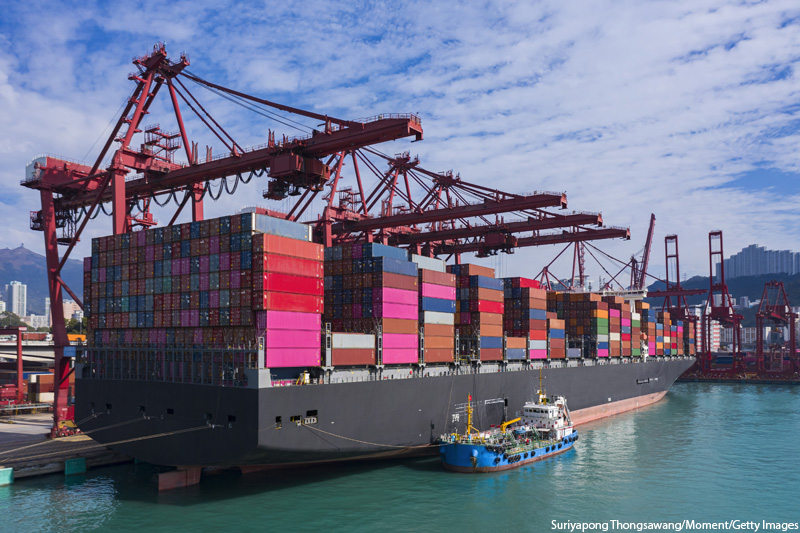
The Teal Pumpkin Project
One out of every thirteen American children lives with a food allergy. So, Halloween is not a simple night of free candy for them.
That’s where the Teal Pumpkin Project comes in. This movement began in 2012 in Tennessee and has now expanded to all fifty states. It encourages households to provide non-food items, such as little toys, in addition to keeping your candy in a separate bowl. This helps all children to participate in this holiday more easily. Households offering these “safe” treats can place a teal pumpkin on their doorstep to make them easier for kids to identify.
You can also add your address to an online map, and then use the tool to locate other participating households in your neighborhood. (As a bonus, entering your address also puts you into a drawing for a $500 gift card!) The Teal Pumpkin Project website also provides links to download a free allergy-friendly yard sign, arts-and-crafts kits, and more. The goal of the project is to make the holiday as inclusive as possible for every child.
What if you or a child in your household has a food allergy? When they go trick-or-treating, provide them with a teal bucket or bag to signify to neighbors that they would prefer a non-food treat.
Dig Deeper Come up with a list of fun and inexpensive treats, other than candy, that your household could give away this Halloween. Get creative! Compare with classmates to see who can come up with the longest list.
Japan Holds National Elections
Japan is facing worsening economic problems, as well as the possibility of another coronavirus surge. As a result, the country is facing big political changes as well.
Shinzo Abe was the longest-serving prime minister of Japan. In 2020, Abe was replaced by Yoshihide Suga. But Suga only served for one year, because people disliked how he handled Japan’s COVID-19 pandemic. The Japanese especially disliked that he allowed the Tokyo Olympics to go on despite the country’s surging infection numbers and relatively low vaccination rate. On October 4, 2021, Fumio Kishida was elected Japan’s new prime minister. Kishida has pledged to unite the country and rule in a less dominating way than his predecessors. He has also promised to take a stronger approach to fighting the pandemic.
Japan will be holding its first elections since the pandemic started on October 31, 2021. In preparation, Kishida dissolved the lower house of parliament—eliminating all 456 members at once. The last time an election for the lower house happened was in 2017, when Abe was still prime minister. Since then, conservatives have dominated the parliament. Opposition parties hope that this fresh start will be an opportunity to regain political footing and better represent more political viewpoints.
Dig Deeper Use the Internet to learn more about the different political parties that exist in Japan. Summarize the political positions of the Liberal Democratic Party, the Komeito, the Constitutional Democratic Party of Japan, the Japanese Communist Party, the Japan Innovation Party, and the Democratic Party for the People.
Grocery Stores Try Reusable Packaging
Did you know that food packaging (along with food it still contains) makes up about 30 percent of total U.S. waste annually? Food waste is an estimated 45 percent of all the material in U.S. landfills. Loop is one company that is developing a solution to this problem. Loop partners with grocery stores and restaurants in France and Japan to collect, clean, and sanitize food packaging for reuse. Loop is now looking to expand its services in the United States. The Kroger grocery store chain and Walgreen’s pharmacies are signing on for a pilot program. Thanks to this program, soon a total of 191 stores and restaurants worldwide will be selling food in reusable packages.
So how will it work exactly? When you go to a participating grocery store, you will find a special section where you can buy many of your favorite brands, packaged in reusable containers. Then you’ll pay a deposit–the same way you already do in many states with aluminum cans. When you’re finished with the container, you return it to the store and get your deposit back through the Loop app. Then the containers are cleaned, refilled, and returned to the stores to begin the cycle again.
What if people don’t return the reusable packaging? Loop says that about 80 percent of the packages get returned within sixty days. The rest of the time, it’s possible that people are just hanging onto the containers and refilling them themselves. But what about the number of resources that are used to clean the containers in Loop’s facilities, as well as to transport them back and forth to the stores. Loop says that this is still significantly better for the environment than using up resources to create new products each time.
Dig Deeper Think about the ways that you and your household use plastic and/or disposable products every day. Come up with a list of at least five ways that you could reduce this waste. Share your list with your classmates.
White House Works to Ease Supply Chain Crisis
Maybe you’ve noticed that some consumer items–such as canned goods, meat, and pet food—are getting harder to find in stores. Or maybe they are more expensive once you do find them. But why is this happening? The COVID-19 pandemic has affected the economy across the world. When factories or shipping ports close in one part of the world due to the virus, other countries are impacted. Recently, two of the world’s largest ports in China, as well as hundreds of factories in Vietnam, all shut down because of COVID. Now, those effects are being felt here in the United States. And shortages are becoming an even greater concern as we enter the holiday season.
The Biden administration has a plan to try to ease the supply chain crisis. Right now, there is a backlog of cargo ships waiting to enter the U.S. The White House has responded to this by striking a deal with the Port of Los Angeles and the Port of Long Beach to keep them open 24/7. These California ports together handle about 40 percent of the total amount of goods that enter the United States.
But just getting the goods into the county more quickly isn’t enough. The goods still have to find their way to the store shelves. To that end, the Biden administration has also struck deals with major goods carriers, such as Walmart, FedEx, and UPS. These three companies will also be moving toward adding shifts and operating 24/7 as well.

